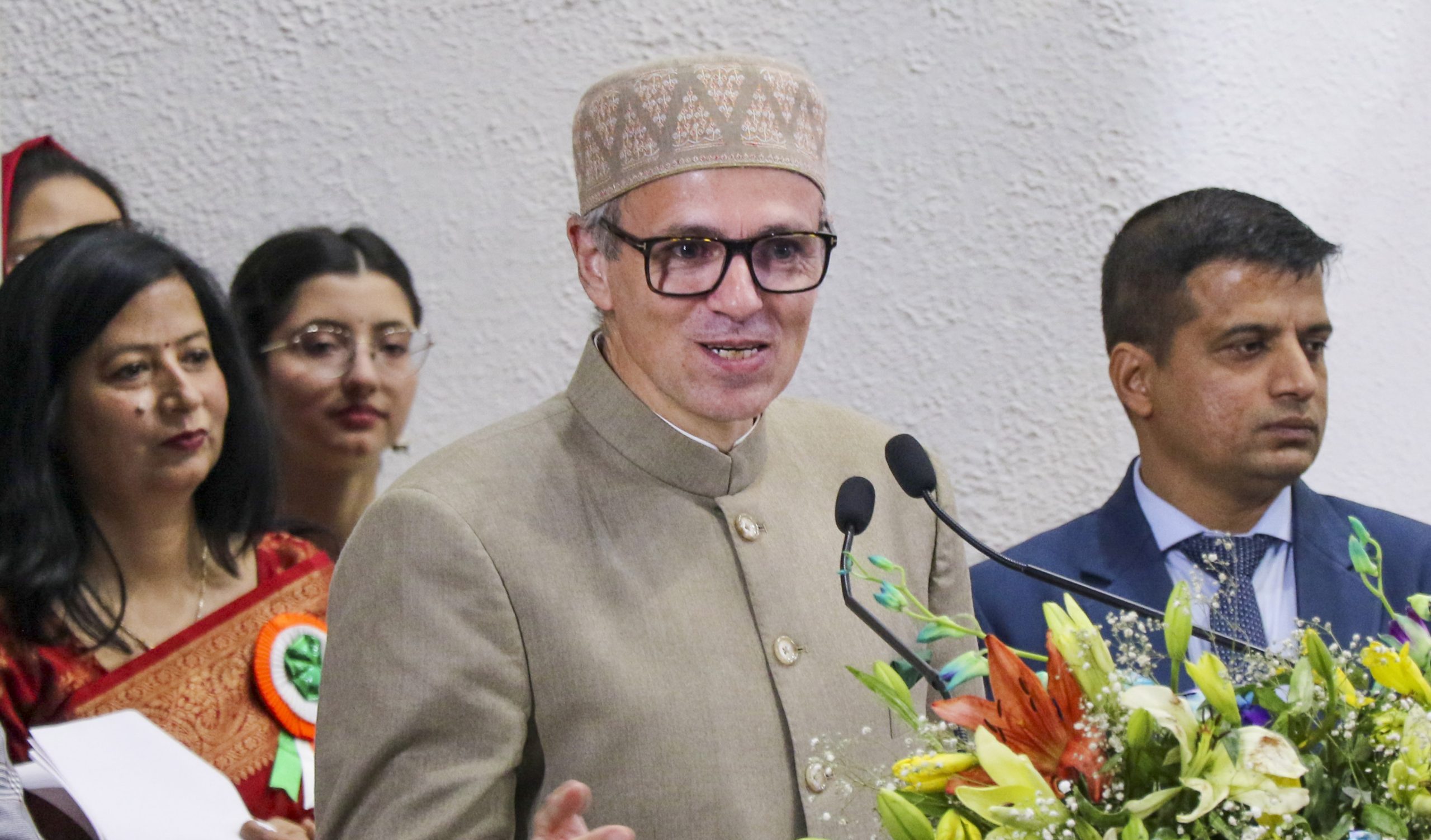Jammu, Feb 14: On Friday, Chief Minister Omar Abdullah underscored his administration’s dedication to enhancing healthcare access throughout Jammu and Kashmir. He highlighted the critical need for improved management of emergency situations and increased capacity at various Government Medical Colleges to alleviate pressure on major hospitals.
Abdullah also pointed out the necessity for physicians to provide services beyond urban areas.
“We must bolster and enhance the emergency response capabilities and capacities in the new GMCs, which will alleviate the strain on GMC Jammu and GMC Srinagar. It’s essential that our doctors extend their practices beyond city limits; it’s not a popular stance, but rural communities also deserve access to quality healthcare,” he stated.
The chief minister made these remarks during JK MediCon-2025, the inaugural national conference and workshop held at the Government Medical College (GMC) here, organized by the J&K Medical Council in collaboration with the Student Research Development Council (SRDC).
“The challenge is to enhance healthcare accessibility. The overwhelming demand on GMC Jammu’s emergency services originates from the inadequate healthcare standards in peripheral areas, which compels individuals to seek care in urban centers,” he added.
Abdullah stressed that improving healthcare infrastructure in rural regions is crucial to addressing this issue.
“We won’t just expand facilities in Jammu; we need to strengthen the healthcare offerings in remote areas as well. There was a time when we relied solely on GMC Jammu and GMC Srinagar; now we have GMCs at the district level,” he explained.
In discussing MediCon-2025, the chief minister recognized its significant role in sparking dialogue on pressing medical topics.
“Various debates revolve around issues that MediCon seeks to explore. Importantly, students are engaged through the SRDC,” he noted.
Abdullah mentioned that participants can earn 11 credits from MediCon, which will encourage greater participation and enthusiasm.
“I anticipate discussions regarding advancements in medical science—how technology enhances care versus where human interaction remains essential. While AI may outperform us at times, certain aspects of care can only be delivered by people,” he affirmed.
Addressing the ethical considerations in modern healthcare practices, Abdullah questioned where to draw the ethical line.
“How do we determine the ethical boundaries in healthcare? Is there a possibility of excess ethics? Can profit-driven motives in medical care conflict with ethical obligations? Should hospitals prioritize revenue generation over patient care?” he queried.
The chief minister highlighted the challenges faced by doctors in corporate hospitals, where their success is quantified not by patient care but income generation.
Discussing the future of robotic surgery and AI in healthcare, Abdullah acknowledged both the opportunities and reservations surrounding these innovations.
“Robotic surgery is gaining traction, and Principal GMC Jammu (Ashutosh Gupta) suggested that AI could potentially dominate medical tasks in the future. Personally, I find the idea of entrusting my life to a machine unsettling,” the chief minister remarked.
“Ultimately, the depth of human connection remains invaluable, and that’s where doctors—who perform vital work—play an essential role,” he concluded.
He also recognized GMC Jammu’s growth initiatives and expressed his willingness to contribute.
“Principal GMC Jammu shared several concepts for the growth of GMC Jammu. My colleagues and I will ensure that at least one of those initiatives is realized so that I, too, can have a significant role in future developments,” he concluded humorously. (Agencies)


Leave a Reply